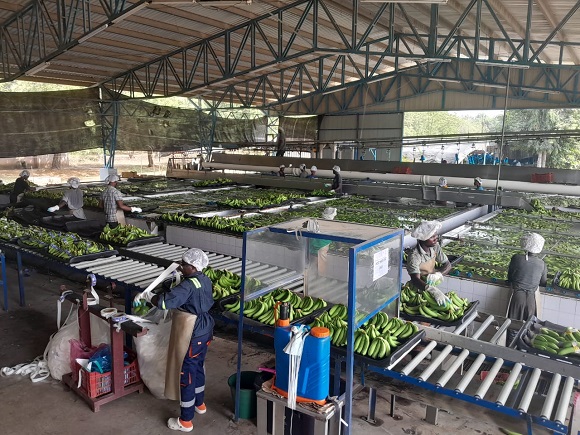The World Bank has pledged to fund the US$30 million gap in the implementation of the Food Systems Resilience Programme (FSRP) to boost irrigation farming and agriculture productivity.
Ousmane Diagana, the Regional Vice President for Western and Central Africa for the World Bank, made this disclosure when he visited the Kpong Irrigation Scheme and Kpong Left Bank Irrigation System sites.
“There’s a US$30 million funding gap to see the full completion of this project. We’re a long-standing partner for Ghana in every area… and we will be happy of course to consider adding financing if necessary. So, this is something that is absolutely possible.” Diagana said.
While the Bank estimates Ghana’s irrigable land to be 1.9 million hectares, about 1.6 per cent is equipped with irrigation, compared with the West and Central Africa average of 13.9 per cent, causing a blow to the country’s agricultural and food resilience.
Speaking to this subject, Diagana noted that agriculture was essential for job creation and fundamental for income generation, adding that “no country can develop without investing in its agriculture.”
He called on the government to provide sustainable investment in smart agriculture to boost productivity and reduce the country’s reliance on the importation of rice, maize, and vegetables.
Commending the outcomes of the ongoing irrigation projects in Asutuare and Kpong, the World Bank Vice President said the productivity of six tonnes per hectare was a good practice.
“The best experience suggests that if you do this type of investment and you are able to be close to seven tonnes per hectare, then you’re really making good use of the time, resources, and the likelihood to have the project really achieve its impact will be extremely high,” Diagana said.
He noted that Ghana’s strategic and geographic location, served as a gateway to other countries, and pledged the World Bank’s continued support to scale up irrigation initiatives for food resilience and security.
Osei Owusu Agyeman, the Project Coordinator of FSRP, indicated that the project was combining adaptive mobility and sustainable interventions to arm the vulnerable households, families, farmers, and communities to withstand uncertainty and shocks in food production and distribution.
He stated that investing in agriculture was an investment in community for food security and jobs, citing that with an amount of US22.5m from the World Bank, the FSRP had modernised major irrigation schemes in the country.
Priscilla Adom Tawiah, the Secretary of the Investors Cooperative at the Kpone Left Bank Irrigation System site, said the project had been beneficial, particularly to the youth and women in agriculture.
“We’ve brought a lot of economic development to the people.” Tawiah said and called for increased access to affordable funding to players in the agriculture value chain.
“We believe that if there’s a dedicated matching grant, we’ll be able to develop our businesses faster than we’re doing now, transform the whole of the left bank and become an agribusiness tourist site for the country and beyond,” she said.
GNA





